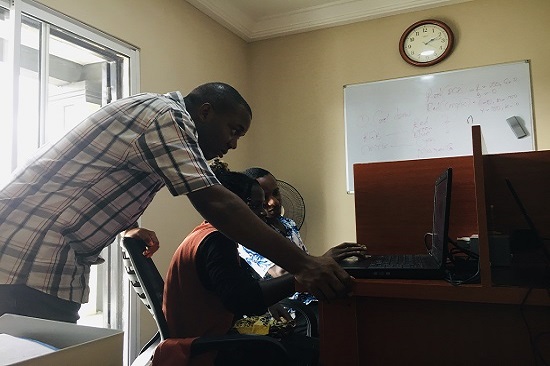
The Future is Digital: Preparing the Next Generation for a Tech-Driven World
The future is digital, and as technology continues to evolve at an unprecedented pace, digital literacy has become a critical skill for success in the modern world. The rapid integration of technology into every aspect of life—from education and employment to communication and entertainment—means that individuals who lack digital skills are at a significant disadvantage. The Iwukem Development Foundation (TIDF) recognizes this challenge and is committed to equipping the next generation with the digital skills they need to thrive in a tech-driven world. Through its comprehensive ICT programmes, TIDF is preparing youth for the future by fostering digital literacy, technical proficiency, and a mindset of innovation.
The Importance of Digital Literacy in the Modern World
The future is digital, and digital literacy is now as essential as traditional literacy. In today’s interconnected world, the ability to navigate digital environments, use online tools, and understand digital content is crucial for personal and professional success. Digital literacy encompasses a range of skills, including the ability to search for information online, communicate effectively using digital platforms, and understand the ethical implications of digital behavior. TIDF’s ICT programmes are designed to develop these skills in young people, ensuring that they are well-prepared to participate in the digital economy and society.
How TIDF’s ICT Programmes Are Shaping the Future Workforce
The future is digital, and TIDF’s ICT programmes are at the forefront of preparing the next generation for the tech-driven job market. These programmes offer training in essential digital skills such as coding, data analysis, digital marketing, and software development. By providing hands-on experience and real-world applications, TIDF ensures that its participants are not only knowledgeable but also capable of applying their skills in practical settings. This approach helps bridge the gap between education and employment, making TIDF graduates highly competitive in the job market and ready to take on the challenges of the digital age.
Empowering Youth Through Digital Skills Training
The future is digital, and empowering youth with digital skills is key to ensuring they can thrive in this environment. TIDF’s ICT programmes are specifically designed to empower young people from underprivileged backgrounds by providing them with the tools they need to succeed. These programmes focus on inclusivity, ensuring that all participants, regardless of their socio-economic status, have access to high-quality digital education. By doing so, TIDF is helping to level the playing field and create opportunities for youth who might otherwise be left behind in the digital revolution.
Preparing for the Tech-Driven World: The Role of Innovation
The future is digital, and innovation is at the heart of preparing the next generation for this reality. TIDF’s ICT programmes encourage creativity and critical thinking, equipping participants with the mindset needed to innovate and solve problems in a tech-driven world. Whether it’s developing new apps, creating digital content, or designing websites, TIDF fosters a culture of innovation that prepares youth to be leaders in the digital economy. By emphasizing the importance of thinking outside the box, TIDF ensures that its graduates are not only prepared to enter the workforce but also to shape the future of technology.
Bridging the Digital Divide: Making ICT Training Accessible
The future is digital, but not everyone has equal access to the opportunities that come with it. The digital divide—disparities in access to technology and digital skills—remains a significant challenge, particularly in underserved communities. TIDF is committed to bridging this divide by making ICT training accessible to all. Through its outreach programmes, TIDF brings digital education to rural and marginalized communities, ensuring that every young person has the chance to develop the skills they need to succeed. By addressing the digital divide, TIDF is not only preparing youth for the future but also contributing to broader social and economic inclusion.
The Long-Term Impact of Digital Literacy on Society
The future is digital, and the long-term impact of digital literacy on society cannot be overstated. As more aspects of life become digitized, the demand for digital skills will only continue to grow. By investing in digital literacy today, TIDF is helping to build a future where individuals are empowered to participate fully in the digital economy, innovate, and contribute to the advancement of society. The benefits of this investment extend beyond individual success; they also include the development of a more inclusive, equitable, and prosperous society.
Conclusion: Preparing for a Tech-Driven Future
The future is digital, and TIDF’s commitment to digital literacy is paving the way for a new generation of tech-savvy leaders. Through its ICT programmes, TIDF is not only preparing youth for the jobs of tomorrow but also empowering them to shape the future. By focusing on digital skills, innovation, and inclusivity, TIDF is ensuring that the next generation is ready to thrive in a tech-driven world. As technology continues to transform the way we live and work, the importance of digital literacy will only grow, making TIDF’s efforts more critical than ever.
[…] programs are crucial in bridging the digital divide and ensuring that no one is left behind. Since the future is digital, as technology continues to evolve, the importance of digital literacy will only increase. It is […]